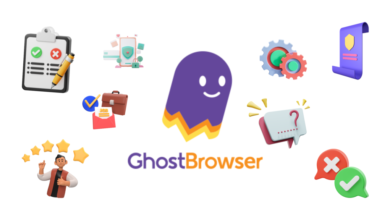Why AI Attribution Is the Future of Performance Tracking
In an era where marketing success hinges on precision and adaptability, AI attribution is emerging as a transformative force in performance tracking. Unlike traditional models that oversimplify customer interactions, AI attribution leverages advanced algorithms to analyze the complex, multi-channel customer journey, offering marketers unparalleled accuracy in measuring campaign impact. By assigning credit to each touchpoint based on its true influence, AI empowers businesses to optimize strategies, allocate resources effectively, and drive measurable outcomes in both B2B and B2C contexts. This article explores why AI attribution is poised to redefine performance tracking, highlighting its capabilities, benefits, and strategic implications for the future of marketing.
Capturing the Full Scope of Customer Interactions
Today’s customers engage with brands across a myriad of touchpoints—social media ads, search queries, emails, webinars, and more—before making a purchase. Traditional attribution models, such as first-click or last-click, fail to capture this complexity, often crediting a single interaction while ignoring the cumulative impact of others. AI attribution revolutionizes this by using machine learning to analyze the entire customer journey, assigning weighted credit to each touchpoint based on its role in driving conversions.
For instance, a B2C shopper might discover a brand through a YouTube ad, browse products on a website, and convert after a retargeting email. AI attribution evaluates the influence of each interaction, revealing that the email was pivotal, even if the ad sparked initial interest. In B2B, a decision-maker might engage with a LinkedIn post, attend a demo, and consult a sales team; AI can pinpoint which touchpoint sealed the deal. This holistic approach ensures marketers understand the full scope of customer interactions, providing a more accurate foundation for performance tracking.
Harnessing Advanced Analytics for Precision
The power of AI attribution lies in its ability to process vast datasets with speed and precision, integrating information from CRM systems, ad platforms, and website analytics. This enables a granular understanding of how touchpoints contribute to outcomes, far surpassing the capabilities of traditional models.
Consider a B2C retailer running a multi-channel campaign across Instagram, Google Ads, and email. AI attribution can analyze metrics like click-through rates, time on site, and purchase data to determine which channel drove the most conversions. In B2B, a software vendor might track a prospect’s engagement with a whitepaper, a webinar, and a sales call, identifying which interaction was most influential. By synthesizing these insights, AI provides a clear picture of campaign performance, enabling marketers to focus on high-impact touchpoints.
This precision extends to audience segmentation. AI can reveal how different groups—such as small businesses versus enterprises or millennials versus Gen X—respond to campaigns, allowing for tailored strategies. This data-driven approach ensures performance tracking is not only accurate but also actionable, driving better decision-making.
Transcending Traditional Attribution Limitations
Traditional attribution models, like linear or time-decay, often distort the true impact of marketing efforts. Linear models assign equal credit to all touchpoints, ignoring their varying influence, while time-decay prioritizes recent interactions, undervaluing earlier ones. AI attribution transcends these limitations by using dynamic, data-driven models that adapt to the unique characteristics of each customer journey.
For example, a B2C brand might find that social media ads spark awareness, but personalized emails drive conversions, prompting a shift in budget allocation. In B2B, AI could reveal that a combination of thought leadership content and sales consultations influences enterprise buyers, even if a contract signing is the final step. By tailoring attribution to real-world behaviors, AI ensures performance tracking reflects the nuanced reality of customer interactions.
The adaptability of AI models is a key strength. As new channels or behaviors emerge—such as voice search or virtual events—AI can incorporate fresh data, keeping attribution relevant. This flexibility positions AI as a future-proof solution for performance tracking in an ever-evolving marketing landscape.
Enabling Dynamic Campaign Optimization
AI attribution’s real-time capabilities are a game-changer for performance tracking, allowing marketers to optimize campaigns as they unfold. Unlike traditional models that rely on post-campaign analysis, AI provides immediate insights into performance metrics, enabling rapid adjustments to maximize impact.
For instance, a B2C retailer might use AI to monitor a campaign and discover that Instagram ads outperform search ads in driving conversions. By reallocating budget mid-campaign, the retailer can enhance ROI. In B2B, a vendor could find that webinars generate high-value leads, prompting increased investment in live events. Programmatic advertising, powered by AI, further streamlines this process by automating ad placements to prioritize high-performing channels.
This dynamic optimization ensures marketers stay agile, responding to customer behavior in real time. By aligning campaigns with performance insights, businesses can reduce waste and amplify results, making AI attribution a critical tool for strategic success.
Informing Personalized Marketing Strategies
AI attribution goes beyond measurement to inform personalized marketing strategies that resonate with customers. By identifying which touchpoints drive engagement for specific segments, AI enables marketers to craft targeted campaigns. For example, a B2C brand might learn that younger shoppers respond to video ads on TikTok, while older customers engage with email promotions, allowing for tailored content delivery.
In B2B, AI attribution can highlight which content types—such as case studies or technical demos—influence decision-makers at different stages. A vendor might discover that CFOs prioritize ROI-focused content, prompting the creation of financial analyses. This personalization ensures marketing efforts are relevant, increasing conversion rates and customer satisfaction.
Real-time insights further enhance personalization. If AI shows a campaign underperforming for a specific segment, marketers can adjust messaging or channels immediately, ensuring alignment with customer preferences. This adaptability makes AI attribution a powerful driver of personalized, effective marketing.
Balancing Privacy and Ethical Considerations
The reliance on customer data for AI attribution raises critical privacy and ethical concerns. With growing scrutiny over data usage, marketers must prioritize transparency to maintain trust. Compliance with regulations like GDPR or CCPA is essential, ensuring data is collected with consent and handled securely.
For example, a B2C brand might offer customers an opt-in for personalized ads, clearly explaining how data informs attribution. In B2B, vendors can anonymize client data to protect privacy while still gaining actionable insights. Ethical AI practices, such as auditing algorithms for bias, ensure attribution models are fair and inclusive, avoiding unintended discrimination.
By addressing these concerns, marketers can leverage AI attribution responsibly, balancing accuracy with respect for customer privacy. This ethical approach strengthens brand reputation and fosters long-term trust, a critical factor in customer relationships.
Seamlessly Integrating with Marketing Systems
To unlock AI attribution’s full potential, businesses must integrate it with existing marketing systems. CRM platforms, ad management tools, and analytics software must work together to provide a unified dataset for AI to analyze. For instance, integrating Google Ads data with a CRM like Salesforce allows AI to track a customer’s journey from ad click to conversion, ensuring accurate attribution.
This integration requires careful planning to avoid data silos. A B2C retailer might connect its e-commerce platform with social media analytics to measure ad-driven sales, while a B2B vendor links webinar registrations with CRM data to assess their impact. Training teams to interpret AI insights ensures marketers can act on attribution data effectively, from reallocating budgets to refining campaigns.
A cohesive ecosystem amplifies AI attribution’s power, enabling businesses to align performance tracking with strategic goals. This integration transforms attribution into a cornerstone of data-driven marketing.
Adapting to a Rapidly Evolving Landscape
The marketing landscape is in constant flux, with new channels, technologies, and customer behaviors reshaping the customer journey. AI attribution is uniquely suited to this dynamic environment, as its algorithms can adapt to emerging trends. For instance, the rise of immersive platforms like augmented reality (AR) or gaming environments introduces new touchpoints that AI can analyze, ensuring attribution remains relevant.
In B2C, AI might reveal that voice-activated ads via smart speakers drive engagement, prompting investment in audio campaigns. In B2B, the growing preference for virtual consultations could lead to increased focus on video content. Customer feedback, gathered through surveys or social listening, complements these insights, revealing shifts in expectations like sustainability or data security.
By staying adaptable, AI attribution ensures performance tracking evolves with the market, providing marketers with the insights needed to stay ahead of the curve.
Shaping a Data-Driven Marketing Future
AI attribution is redefining performance tracking by offering unmatched accuracy, real-time insights, and adaptability. By capturing the full scope of customer interactions, overcoming traditional model limitations, and informing personalized strategies, AI empowers marketers to optimize campaigns with precision. Ethical data practices and seamless integration enhance its impact, while its ability to adapt to emerging trends ensures long-term relevance.
For businesses, AI attribution is more than a measurement tool—it’s a strategic driver of growth, enabling data-driven decisions that maximize ROI and strengthen customer relationships. As the marketing landscape continues to evolve, AI attribution stands as the future of performance tracking, equipping marketers to navigate complexity and achieve lasting success in a competitive digital world.
rade mor





